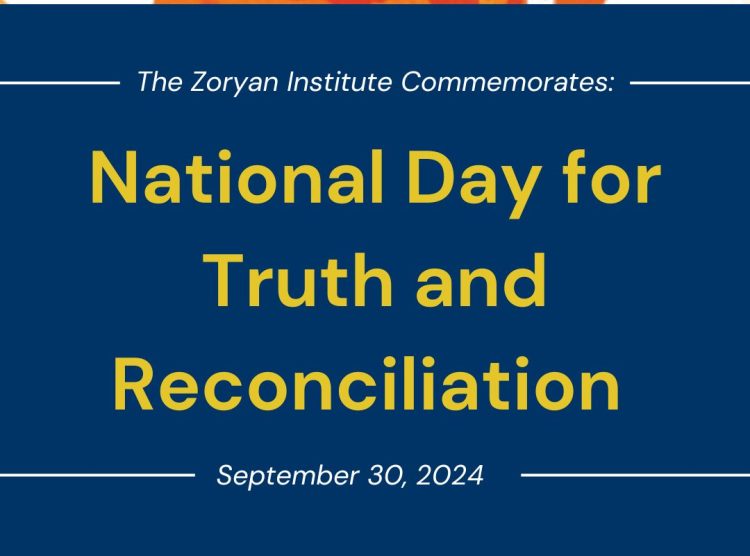Toronto, Monday December 18, 2023: The Zoryan Institute is pleased to announce that the latest issue of its peer reviewed journal, Diaspora: A Journal of Transnational Studies, Vol. 23, No. 2, is now available online! This special issue is dedicated to examining the role of memorial books in comparative and global perspectives, and was guest edited by Eliyana R Adler, Associate Professor of History and Jewish Studies at the Pennsylvania State University, and Polly Zavadivker, Assistant Professor of History at the University of Delaware.
This issue, featuring seven original research papers and a book review, critically explores and examines memorial books from diverse disciplinary, regional, and cultural perspectives. It also illuminates the multifaceted functions of these books as memorials, and sheds light on how these repositories of memory reveal the ways in which diasporic communities have preserved and integrated their pasts into the present. The examination of memory books in this issue highlights the intricate connections between individuals and the homes they leave behind, and examines the various ways in which writing, images, and books serve as mediums to express and encapsulate the memories and memorialization of those places.
Featured Articles
Introduction: Memorial Books in Comparative and Global Perspectives by Eliyana R. Adler & Polly Zavadivker read here
Depicting the Past and its Diversity in the Age of Nationalisms: The Armenian Memory Books (houshamadyan) by Vahé Tachjian read here
Let this Book be a Monument: Yizker Bikher and Jewish Collective Memory by Jennifer Rich read here
Translating Trauma: The Afterlife of Holocaust Memorial Books by Eliyana R. Adler read here
Crowding out the Algerian War in French Memorial Books by Amy L. Hubbell read here
A Settler Colonial Memorial Book: The Agricultural School and Museum of Sidi-Bel-Abbès, Algeria by Susan Slyomovics read here
The Moroccan “Yizkor Book”: Holocaust Memory, Intra-Jewish Marginalization, and Communal Empowerment in Israel by Aviad Moreno & Haim Bitton read here
Reflections: A Merchant, a Spy, an Artist, and a Viennese Coffeehouse Owner: Some Notes on an Armenian Sketchbook-Chronicle Preserved in the National Library of Austria by Sebouh David Aslanian read here
Book Review – From Near and Far: A Transnational History of France by Sarah-Jane (Saje) Mathieu read here
________________________________________________________________________________________________________
About Diaspora: A Journal of Transnational Studies
Diaspora: A Journal of Transnational Studies captures a world where borders are transgressed and elastic, boundaries are fractured and permeable, and identities are increasingly fluid and adaptable. The establishment of this journal in 1991 by the Zoryan Institute was a seminal moment in marking what has become the field of Diaspora Studies.
The journal continues to be a leading voice in the field, continuously rethinking mobility, mobilization, and transnationalism, and reorienting traditional accounts of home, homeland, host state and diaspora in this ever-changing world. As an interdisciplinary journal, Diaspora welcomes the contributions of scholars from across the social sciences and humanities who share these intellectual concerns. Learn more about the history of the Diaspora journal and its continuing contribution to the field.
Diaspora is sponsored, owned and operated by the Zoryan Institute, and published twice a year by the University of Toronto Press.
How to Subscribe to Diaspora:
Individual online subscriptions provide access to all online content for one year from the purchase date. Individual articles may also be purchased by navigating to the article’s full-text page and selecting a single article access option.
How to Submit to Diaspora:
Diaspora welcomes articles on all aspects of the topics with which it is concerned: diaspora and related forms of dispersion, transnationalism, nationalism, ethnicity, globalization, and postcoloniality. Reference the submission guidelines here.



